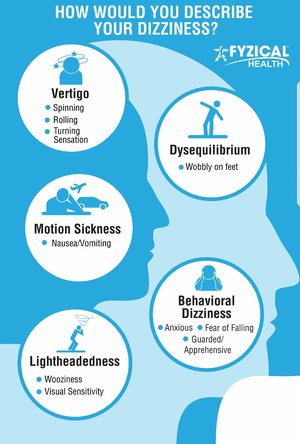What Is the Most Common Vertigo Causes?

Vertigo is one of the most common, but often misdiagnosed conditions in today's world
This article will discuss some of the many possible vertigo causes and how to treat your condition.
Vertigo, or dizziness, is the feeling that you are losing your balance. It can vary from mild to severe, but typically it starts when you become unsteady on your feet or have trouble walking. It can be a symptom of other health concerns, such as cerebrovascular disease or a brain tumor.
The most common cause of vertigo is vertigo induced by a spinal cord injury. Some patients find it impossible to walk because they cannot regain their balance, even after orthopedic surgery.
Causes can also include head injuries, tumors, a tumor or meningitis. However, many patients do not have any obvious reason for their dizziness. In fact, most patients do not realize that they have vertigo until they have difficulty walking or sitting. For this reason, it is important that patients know the symptoms of vertigo and the proper treatment options for each specific condition.
Common vertigo causes are: subluxations, which are caused by muscle imbalances; carotid sinus problems, which are caused by blocked passageways to the brain; and poor blood circulation and poor circulation. In the case of subluxations, muscles that do not work properly may result in increased pressure on the brain, causing it to lose balance. These causes, while often temporary, can be treated.
Carotid sinus problems are often the result of aneurysm or a hemorrhage. While this type of problem can cause vertigo, most patients do not experience any symptoms. A patient suffering from carotid sinus problems may only feel slight headaches or nausea if they have a recent episode, but there is usually no way to determine when this may occur.

Brain tumors are another cause of vertigo, especially in the elderly
A tumor can cause a blockage in the blood vessels in the brain. The flow of oxygen to the brain is affected and this causes a feeling of vertigo, usually in one or both of the lower limbs.
Vertigo is one of the most common and serious medical conditions in the United States. With the right treatment, many patients can overcome their symptoms and live full, independent lives. Consult your doctor about your condition today to find out more about treatment options.
One of the most important treatments available for vertigo is anti-depressants. They can help control symptoms, and help patients cope with the effects of vertigo.
Vertigo can affect both younger and older people. Children may experience vertigo from head injuries, as well as from having a disease such as encephalitis, which causes inflammation of the brain. Some children may also experience vertigo from the side effects of birth control pills and certain medications used to treat high blood pressure.
Older adults may also experience some of these problems, especially if they are experiencing serious medical conditions such as meningitis, a tumor or cerebrospinal fluid leaks. damage.
If a patient experiences vertigo due to a medical condition, the treatment options may include certain medicines. These medicines are used to treat various medical conditions. If a person is allergic to the medicines, a physician may prescribe an antihistamine, which can reduce the symptoms.
Anti-depressants are also used for treating vertigo in adults. Medications used to treat vertigo can range from benzodiazepines to beta blockers. Medications such as amitriptyline, clomipramine and paroxetine have been proven to relieve some of the symptoms. When taken in conjunction with lifestyle changes, anti-depressants can be effective in treating vertigo, though doctors recommend consulting with their patients first.